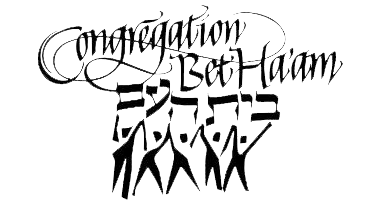by Rabbi Jared H. Saks
I think Purim was among my favorite Jewish holidays when I was a child. I looked forward to the Purim Carnival, where I’d try to win a goldfish, much to my parents’ dismay. My temple had hamantaschen, potato knishes, and hot dogs for us to enjoy. I still remember getting a hot dog one year, forgetting to pay for it, and making my parents drive back to temple so that I could pay for the hot dog that I’d eaten. I’m sure I dressed in costume, though I don’t remember those costumes. And one year, I got to play the part of Esther in my religious school class’s reading of the book of Esther. All that being said, I actually knew little of the mitzvot (commandments) of Purim.
In his Mishneh Torah (Laws of Purim and Hanukkah 2:15-16), Maimonides, the 13th century Sephardic Jewish philosopher, teaches that there are four mitzvot of Purim: hearing the book of Esther, sending gifts to one another, supporting those in need, and enjoying a festive meal. The first and the last are easily accomplished by attending a Purim celebration, like our Purim Shpiel, Megillah Reading, and Carnival on Sunday morning, March 8, at Bet Ha’am. (Read more here.)
Most of us are familiar with much of the story of the book of Esther, in which Haman, the right-hand man of King Ahasuerus, convinces the king to enact an edict to kill all of the Jews in the empire. Esther, after whom the book is named, succeeds Vashti as queen and hides her Jewish identity until just the right moment, when she can save her people. What you may not know is that the bumbling king is somehow inept at halting his decree. Instead, he allows the Jews to fight back and we win. The end of the story is rather gruesome, detailing the Jews’ slaughter of their enemies. When the battle is over and Haman and his sons have all been killed, the Jews celebrate on the day on which they were supposed to die. Mordecai, who succeeds Haman as the king’s right-hand man, decrees that the 14th of Adar (and the 15th, in walled cities) is forever to be a festive day for feasting and merrymaking, thus giving us the holiday of Purim. More than that, though, Mordecai declares the holiday as “an occasion for sending gifts to one another and presents to the poor” (Esther 9:22).
As a result, while most, if not all, of us give gifts at Hanukkah, Purim is actually the traditional holiday in the Jewish calendar for exchanging gifts. It’s the remaining one of these mitzvot that I want to address with you, matanot la’evyonim, supporting those in need. Since the days of Mordecai and Esther, Purim has been associated with supporting those in need. Maimonides teaches that one should not be particular about Purim tzedakah. Rather, we should give to every person who puts out their hand. We should spend more money on this tzedakah than what we spend on our festive meal or on our gifts to friends, because no joy is greater than the joy of gladdening the hearts of those in need.
Today, many people fulfill the obligation of matanot la’evyonim through charitable organizations that directly help the most vulnerable. In fact, gifts that you make to Bet Ha’am not only help to pay our staff, keep on our lights and heat, and run the holidays, programs, and educational opportunities that make our Jewish lives meaningful. They also help our congregation be a force for good in our community and in the world. Did you know that our congregation is a host congregation with Greater Portland Family Promise? Four times a year, families experiencing homelessness become weeklong guests in our religious classrooms, where they have a safe, warm place to eat, sleep, and gather with others. We support Wayside Food Programs to fight hunger in our community; Friendship House to help men seeking to overcome addiction; and several other organizations. Through individual donations and partnership with other organizations, we secured the lot next to our building as a green space and city park that benefits not only our own community but our neighbors as well. When you are generous with your giving to Bet Ha’am, you help improve our community and our world. This Purim consider making a gift of matanot la’evyonim to Bet Ha’am so that we can continue to make the world a better place.
Photo by Sharon McCutcheon on Unsplash

